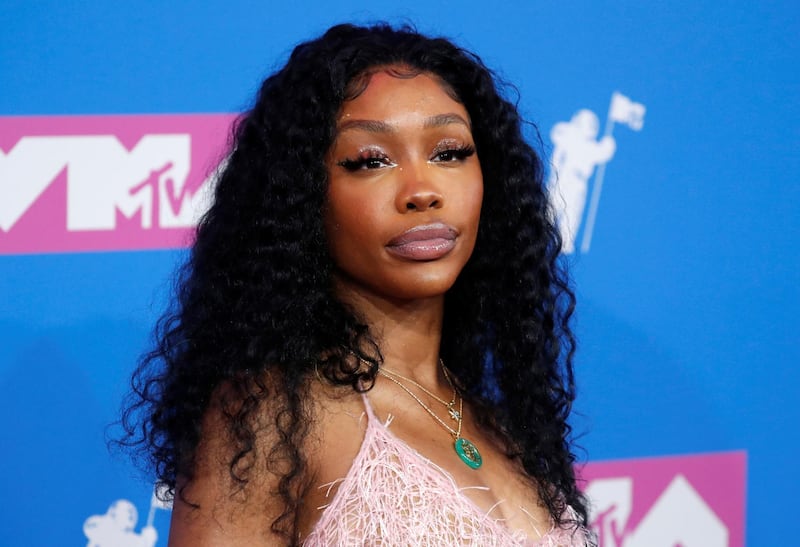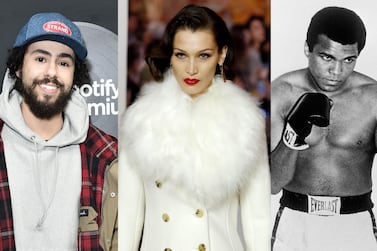Grammy-nominated singer SZA says she stopped wearing her hijab following 9/11 over fear of being the target of Islamophobia.
The All the Stars singer, 30, has opened up about her experiences of being raised in a Muslim household in a predominantly white area of New Jersey.
During a live TikTok question-and-answer session with online platform Muslim Girl, SZA, whose real name is Solana Rowe, said: "On a direct scale, someone threw a brick in my dad's mosque. And that was very weird. Getting chased home by children at school and getting my hijab snatched is also weird."
She also revealed she stopped covering her hair in 2001 following the terror attacks in America that took place on September 11 that year.
“I stopped covering after 9/11 because I was so scared. This was like elementary school, middle school. I regret so much – like, being afraid or caring what people said about me,” she said.
SZA chose to cover her hair again when performing in Malaysia and Indonesia years later, and said she enjoyed knowing she would not be judged for doing so.
“It was really comforting to be able to cover up for those shows,” she said.
She added that she thinks about covering her hair again “all the time”, and is shocked by the disinformation and Islamophobia that still surrounds the Muslim faith, leading some to “randomly decide that I’m oppressed because I’m covering my hair. I’m not oppressed.
“I did start covering again in high school, and then they were like, ‘What is this? You don’t live your life properly. You’re not really Muslim. Shut up.’,” she revealed. “I always let somebody dictate how I was.”
Her 2017 debut album Ctrl explored the experiences of many young women of colour and faith, and earned her a Grammy nomination for Best Contemporary Album. It also touched on her relationship with faith.
"Sometimes I feel like I'm super-imperfect and I can't possibly have any value in spirituality,” she said during the TikTok Live. “But I realised that everybody's journey with God, source, spirit, Allah, whatever you want to call it, is very personal. It's very direct and it's... just super-individualised.
"So I try to just release the guilt and let whatever natural energy is coming through my mind, and just embrace all the thoughts, all the feelings."







